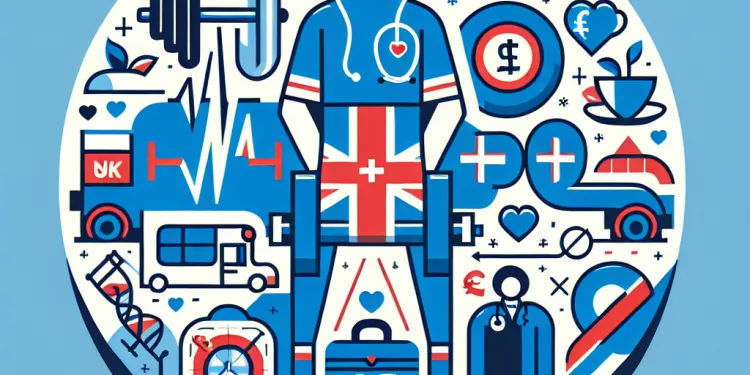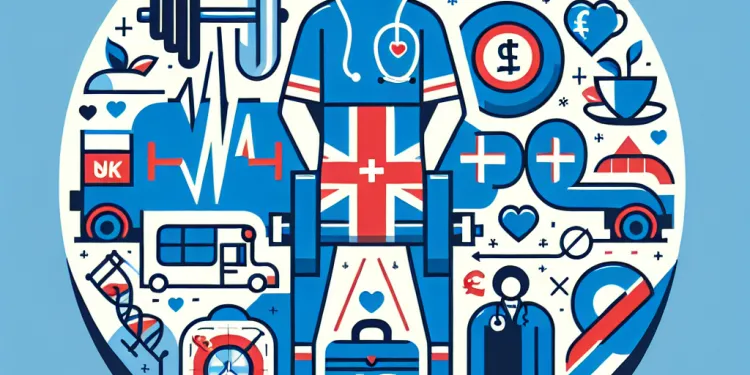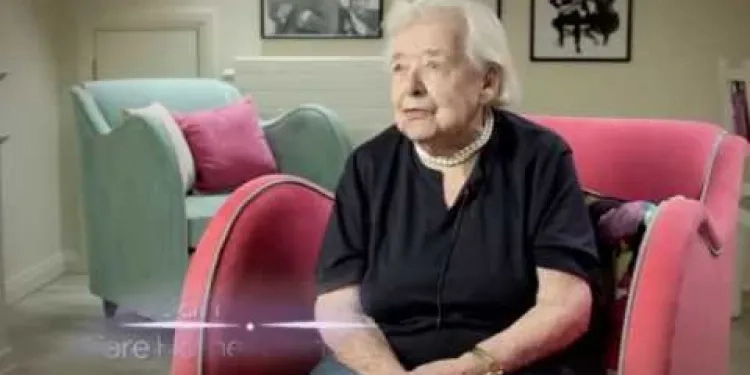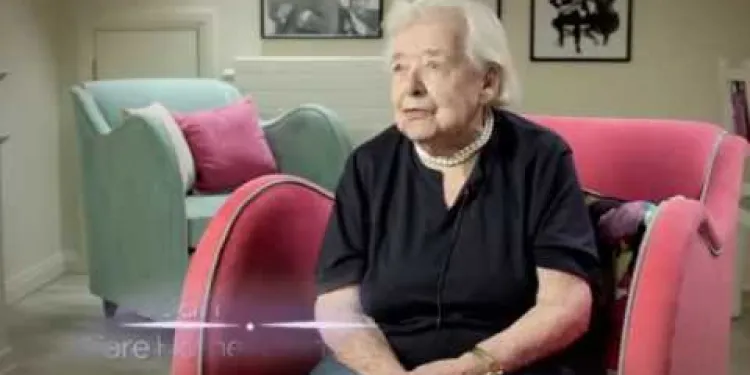
Find A Professional
More Items From Ergsy search
-

What are the career progression opportunities for NHS nurses?
Relevance: 100%
-

What types of nursing degrees can I pursue?
Relevance: 97%
-

How can I become an NHS Nurse in the UK?
Relevance: 91%
-

What are the basic educational requirements to become an NHS nurse?
Relevance: 83%
-

Can I become a nurse in the NHS with a nursing diploma?
Relevance: 77%
-

How physically demanding is a career in NHS nursing?
Relevance: 74%
-

Are there any apprenticeship routes to becoming an NHS nurse?
Relevance: 69%
-

What skills are important for a career in nursing?
Relevance: 63%
-

Is there a minimum age requirement to start nurse training?
Relevance: 63%
-

How long does it take to become an NHS nurse?
Relevance: 63%
-

What GCSEs or A-Levels do I need to become a nurse?
Relevance: 62%
-

What support systems are available to NHS nurses for continuing professional development?
Relevance: 62%
-

Do I need to be registered with the Nursing and Midwifery Council (NMC) to work as an NHS nurse?
Relevance: 60%
-

Can I become an NHS nurse if I have international nursing qualifications?
Relevance: 60%
-

How important is work experience for entering a nursing program?
Relevance: 53%
-

What is the process for applying to a nursing degree course?
Relevance: 52%
-

Can physical symptoms be linked to relationship-induced depression?
Relevance: 51%
-

Can I specialize in a certain area of nursing with the NHS?
Relevance: 49%
-

What funding options are available for nursing students in the UK?
Relevance: 49%
-

Is it possible to study nursing part-time?
Relevance: 46%
-

Will I need physical therapy after a hip replacement?
Relevance: 45%
-

How important is physical activity in preventing obesity?
Relevance: 41%
-

The role of residential and nursing homes
Relevance: 40%
-

How do I choose a good nursing home?
Relevance: 37%
-

Is the physical card still valid after 2025?
Relevance: 35%
-

The role of residential & nursing homes
Relevance: 34%
-

How do I choose a good bursing home
Relevance: 33%
-

What's the difference between chemical and physical sunscreens?
Relevance: 32%
-

GP Nursing Most Common Medications UK.
Relevance: 29%
-

Can I attend open days to learn more about nursing programs in the UK?
Relevance: 25%
-

How does the National Trust support career development?
Relevance: 24%
-

Staying Active: National Health Campaigns Promoting Physical Well-being
Relevance: 24%
-

Will the digital driving license replace the physical card?
Relevance: 23%
-

Who can administer Botox?
Relevance: 22%
-

Teachers Pension Explained | All you need to know | Final Salary & Career Average Earnings
Relevance: 22%
-

Redundancy Coaching Couch 2: Redundancy and Passion
Relevance: 21%
-

Can you participate in sports or physical activities with a stoma bag?
Relevance: 20%
-

Will I be able to engage in physical exercise?
Relevance: 20%
-

Mental Health Services Struggle to Cope Amid Record Demand
Relevance: 19%
-

South London Arrhythmia Nurses Forum (16 June 2022)
Relevance: 18%
How Physically Demanding is a Career in NHS Nursing?
Nursing within the National Health Service (NHS) in the UK is a highly rewarding yet physically demanding profession. Given the 24/7 nature of healthcare, nurses are expected to maintain a high level of physical fitness to perform their duties effectively and ensure patient safety.
The Nature of Physical Demands
One of the most significant physical demands faced by NHS nurses is the need for constant mobility. Nurses are on their feet for extended periods, often working shifts that last up to 12 hours or more. The need to move quickly between wards, respond to patient calls, or participate in emergency situations requires not only endurance but also agility and strength.
Lifting and transferring patients is another aspect that adds to the physical strain of nursing. Despite advancements in technology and the availability of mechanical aids, nurses regularly reposition patients, assist them in mobility exercises, and help them with daily activities. This requires proper lifting techniques and considerable physical strength to prevent injury to both the nurse and the patient.
Ergonomics and Injury Prevention
The NHS recognizes the physical challenges nurses face and consequently places a strong emphasis on ergonomics and injury prevention. Training on proper body mechanics and the use of lifting aids is routinely provided to minimize the risk of musculoskeletal injuries, which are prevalent among healthcare workers. Despite these precautions, nurses must remain vigilant and maintain good physical health to reduce the risk of chronic conditions often associated with the profession.
The Emotional Toll
Besides the physical aspects, nursing takes a significant emotional toll, which can indirectly affect physical well-being. The job involves dealing with life-and-death situations, supporting grieving families, and managing high-pressure scenarios. This emotional stress can lead to physical symptoms such as fatigue, headaches, and muscle tension, potentially impairing a nurse's ability to perform physically demanding tasks efficiently.
Supporting Nurses' Well-being
To support the well-being of NHS nurses, there is a growing emphasis on ensuring proper working conditions and providing access to wellness programs. Regular breaks, access to physiotherapy, mental health support, and workplace flexibility are crucial elements in maintaining nurses' overall health. Hospitals and clinics are encouraged to foster a supportive environment where the physical and mental health of nurses is prioritized.
Conclusion
In summary, a career in NHS nursing is undeniably physically demanding. The demands of patient care, combined with long hours and the emotional stress of the job, require nurses to maintain not just physical strength but also overall health and well-being. Recognizing these demands, the NHS provides resources and training to support its nurses, ensuring that they can continue to deliver high-quality care to patients across the UK.
How Hard is it to be a Nurse in the NHS?
Being a nurse in the NHS in the UK is a very rewarding job. But it is also a tough job that needs a lot of physical effort. Nurses work all the time, day and night, so they must stay fit to do their job well and keep patients safe.
What Makes the Job Hard?
Nurses have to move around a lot. They are on their feet for long times, sometimes working 12 hours or more. They walk quickly between different parts of the hospital, answer patient calls, and handle emergencies. This means nurses need energy, speed, and strength.
Helping patients move is also a big part of the job. Nurses use special machines to help lift patients, but they still need to help move patients or help them exercise. This needs good ways to lift without getting hurt and strong muscles to help patients safely.
Staying Safe from Injuries
The NHS knows nursing can be hard on the body. So, they teach nurses how to move and lift safely. They also use lifting machines to help avoid injuries. Even with these helps, nurses should keep healthy to not get long-term injuries from their work.
Feeling Stressed
Nursing is not just hard on the body. It can also be stressful. Nurses deal with very serious situations, help families who are upset, and work under pressure. This stress can make nurses feel very tired or have aches, which can make it harder to do their physical work.
Helping Nurses Feel Better
To help nurses, the NHS is making sure they have good working conditions. Nurses get breaks, physiotherapy, support for their mental health, and flexible work options. Hospitals work to make sure nurses are healthy and feel good, both physically and mentally.
Conclusion
Being a nurse in the NHS is tough on the body. Nurses care for patients, work long hours, and manage stress. They need to be strong and healthy. The NHS helps nurses by giving them support and training, so they can keep giving great care to people in the UK.
Frequently Asked Questions
Useful Links
- Ergsy carfully checks the information in the videos we provide here.
- Videos shown by Youtube after a video has completed, have NOT been reviewed by ERGSY.
- To view, click the arrow in centre of video.
- Most of the videos you find here will have subtitles and/or closed captions available.
- You may need to turn these on, and choose your preferred language.
- Go to the video you'd like to watch.
- If closed captions (CC) are available, settings will be visible on the bottom right of the video player.
- To turn on Captions, click settings .
- To turn off Captions, click settings again.
More Items From Ergsy search
-

What are the career progression opportunities for NHS nurses?
Relevance: 100%
-

What types of nursing degrees can I pursue?
Relevance: 97%
-

How can I become an NHS Nurse in the UK?
Relevance: 91%
-

What are the basic educational requirements to become an NHS nurse?
Relevance: 83%
-

Can I become a nurse in the NHS with a nursing diploma?
Relevance: 77%
-

How physically demanding is a career in NHS nursing?
Relevance: 74%
-

Are there any apprenticeship routes to becoming an NHS nurse?
Relevance: 69%
-

What skills are important for a career in nursing?
Relevance: 63%
-

Is there a minimum age requirement to start nurse training?
Relevance: 63%
-

How long does it take to become an NHS nurse?
Relevance: 63%
-

What GCSEs or A-Levels do I need to become a nurse?
Relevance: 62%
-

What support systems are available to NHS nurses for continuing professional development?
Relevance: 62%
-

Do I need to be registered with the Nursing and Midwifery Council (NMC) to work as an NHS nurse?
Relevance: 60%
-

Can I become an NHS nurse if I have international nursing qualifications?
Relevance: 60%
-

How important is work experience for entering a nursing program?
Relevance: 53%
-

What is the process for applying to a nursing degree course?
Relevance: 52%
-

Can physical symptoms be linked to relationship-induced depression?
Relevance: 51%
-

Can I specialize in a certain area of nursing with the NHS?
Relevance: 49%
-

What funding options are available for nursing students in the UK?
Relevance: 49%
-

Is it possible to study nursing part-time?
Relevance: 46%
-

Will I need physical therapy after a hip replacement?
Relevance: 45%
-

How important is physical activity in preventing obesity?
Relevance: 41%
-

The role of residential and nursing homes
Relevance: 40%
-

How do I choose a good nursing home?
Relevance: 37%
-

Is the physical card still valid after 2025?
Relevance: 35%
-

The role of residential & nursing homes
Relevance: 34%
-

How do I choose a good bursing home
Relevance: 33%
-

What's the difference between chemical and physical sunscreens?
Relevance: 32%
-

GP Nursing Most Common Medications UK.
Relevance: 29%
-

Can I attend open days to learn more about nursing programs in the UK?
Relevance: 25%
-

How does the National Trust support career development?
Relevance: 24%
-

Staying Active: National Health Campaigns Promoting Physical Well-being
Relevance: 24%
-

Will the digital driving license replace the physical card?
Relevance: 23%
-

Who can administer Botox?
Relevance: 22%
-

Teachers Pension Explained | All you need to know | Final Salary & Career Average Earnings
Relevance: 22%
-

Redundancy Coaching Couch 2: Redundancy and Passion
Relevance: 21%
-

Can you participate in sports or physical activities with a stoma bag?
Relevance: 20%
-

Will I be able to engage in physical exercise?
Relevance: 20%
-

Mental Health Services Struggle to Cope Amid Record Demand
Relevance: 19%
-

South London Arrhythmia Nurses Forum (16 June 2022)
Relevance: 18%